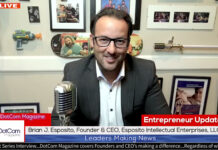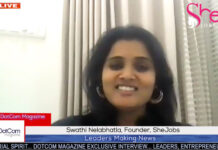Crowdsourcing has emerged as a powerful paradigm for problem-solving, innovation, and collaboration in the digital age. At its core, crowdsourcing involves harnessing the collective intelligence, skills, and resources of a large group of people, often distributed across the globe, to address complex challenges, generate ideas, or accomplish tasks that would be difficult or impractical for a single entity to achieve alone. Whether it’s tapping into the wisdom of the crowd to gather diverse perspectives on a problem, leveraging the collective creativity of individuals to develop new products and services, or mobilizing distributed teams to accomplish large-scale projects, crowdsourcing has become a versatile and widely adopted approach across various domains and industries.
Crowdsourcing platforms and initiatives have proliferated in recent years, fueled by advances in technology, connectivity, and social media. These platforms provide digital marketplaces where individuals, organizations, and communities can collaborate, exchange ideas, and contribute to projects or initiatives of mutual interest. From open innovation platforms that invite participants to submit and develop ideas for new products or solutions to microtasking platforms that crowdsource small, discrete tasks to a distributed workforce, there is a diverse array of crowdsourcing models and approaches tailored to different use cases and objectives.
One of the key benefits of crowdsourcing is its ability to tap into the collective intelligence and creativity of diverse groups of individuals. By engaging participants from different backgrounds, experiences, and perspectives, crowdsourcing initiatives can generate a wide range of ideas, solutions, and insights that may not be readily apparent to a single individual or organization. This diversity of perspectives fosters innovation and creativity, leading to novel approaches and breakthroughs that might not have been possible through traditional problem-solving methods. Moreover, crowdsourcing enables organizations to access specialized expertise and skills that may not be available in-house, allowing them to tackle complex challenges and pursue ambitious projects with confidence.
The concept of crowdsourcing has its roots in the broader principles of collective intelligence and collaborative problem-solving. From ancient times, humans have relied on collective knowledge and collaboration to accomplish tasks, solve problems, and innovate. However, the advent of digital technologies and the internet has democratized access to information and enabled unprecedented levels of connectivity and collaboration on a global scale. This has transformed crowdsourcing from a niche practice into a mainstream phenomenon, with applications spanning from scientific research and product development to disaster response and civic engagement.
The rise of crowdsourcing has democratized innovation and empowered individuals and communities to participate in problem-solving and decision-making processes traditionally dominated by experts or centralized authorities. By leveraging the power of collective intelligence, crowdsourcing platforms enable individuals to contribute their knowledge, skills, and insights to address a wide range of challenges, from scientific research and technological innovation to social and environmental issues. Moreover, crowdsourcing has the potential to democratize access to opportunity and resources, providing a platform for individuals from diverse backgrounds to showcase their talents, build networks, and access new opportunities for collaboration and advancement.
Crowdsourcing has also emerged as a valuable tool for businesses seeking to harness the collective wisdom and creativity of their customers, employees, and stakeholders. By engaging customers in the product development process, companies can gain valuable insights into user needs, preferences, and pain points, enabling them to develop products and services that better meet customer expectations. Similarly, crowdsourcing can be used internally within organizations to foster innovation, collaboration, and employee engagement. By soliciting ideas and feedback from employees across different departments and levels of the organization, companies can tap into the collective intelligence of their workforce to drive innovation and improve business processes.
Crowdsourcing represents a powerful and versatile approach to problem-solving, innovation, and collaboration in the digital age. By harnessing the collective intelligence, creativity, and resources of diverse groups of individuals, crowdsourcing enables organizations to tackle complex challenges, generate new ideas, and drive meaningful change. Whether it’s leveraging the wisdom of the crowd to develop new products and services, engaging citizens in civic decision-making, or mobilizing distributed teams to accomplish large-scale projects, crowdsourcing has become an indispensable tool for organizations and communities seeking to harness the power of collective intelligence for the greater good.
Crowdsourcing has evolved into a multifaceted phenomenon with diverse applications across various domains, from business and technology to science, education, and social impact. In the realm of business, crowdsourcing is increasingly being used to drive innovation, improve decision-making, and enhance customer engagement. Companies leverage crowdsourcing platforms to solicit ideas, feedback, and solutions from customers, employees, and external experts, enabling them to tap into a broader pool of knowledge and expertise. By involving stakeholders in the product development process, businesses can ensure that their offerings are aligned with customer needs and preferences, leading to greater customer satisfaction and loyalty.
In addition to its applications in business, crowdsourcing plays a crucial role in scientific research and academic collaboration. Research institutions and academic communities utilize crowdsourcing platforms to engage citizen scientists, volunteers, and domain experts in data collection, analysis, and problem-solving. This distributed approach to research allows scientists to harness the collective efforts of a global network of collaborators, accelerating the pace of discovery and innovation in fields ranging from astronomy and biology to environmental science and public health. Crowdsourcing also promotes transparency, reproducibility, and inclusivity in scientific research by enabling broader participation and collaboration across geographic, disciplinary, and institutional boundaries.
Furthermore, crowdsourcing has emerged as a powerful tool for civic engagement and social change, empowering citizens to participate in decision-making processes, advocate for causes, and address pressing societal challenges. Through online platforms and digital tools, individuals and grassroots organizations can mobilize support, raise awareness, and organize collective action around issues such as environmental conservation, human rights, and social justice. Crowdsourcing enables citizens to contribute their voices, resources, and expertise to effect positive change in their communities, driving social impact and fostering a sense of civic responsibility and empowerment.
The success of crowdsourcing initiatives hinges on several key factors, including clear goals and objectives, effective communication and collaboration mechanisms, and robust governance structures. Organizations and communities must define the problem or challenge they seek to address, articulate clear goals and expectations, and establish mechanisms for soliciting, evaluating, and implementing contributions from participants. Moreover, effective communication and engagement strategies are essential for fostering a sense of ownership, trust, and accountability among participants, ensuring that they are motivated to contribute and collaborate effectively towards shared objectives. Additionally, robust governance mechanisms are needed to ensure fairness, transparency, and ethical conduct throughout the crowdsourcing process, safeguarding the integrity of the initiative and the interests of all stakeholders involved.
In conclusion, crowdsourcing has emerged as a powerful and versatile approach to problem-solving, innovation, and collaboration in the digital age. By leveraging the collective intelligence, creativity, and resources of diverse groups of individuals, crowdsourcing enables organizations and communities to tackle complex challenges, drive innovation, and effect positive change across various domains. Whether it’s harnessing the wisdom of the crowd to develop new products and services, accelerating scientific research and discovery, or mobilizing citizens to address social and environmental issues, crowdsourcing has the potential to unlock new opportunities and drive meaningful impact for individuals, organizations, and society as a whole.

















